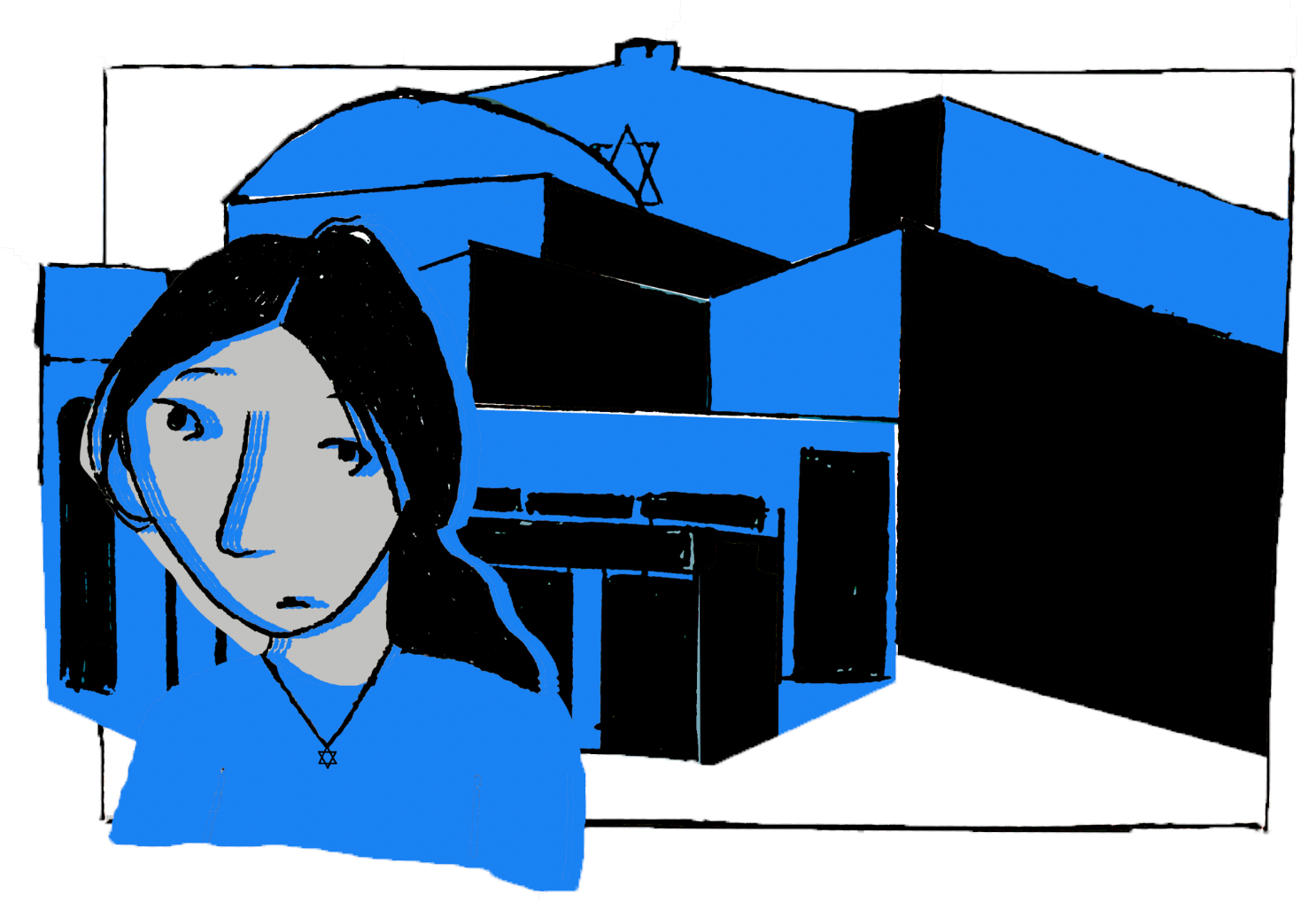A Jewish Concordia student on the Shaar Hashomayim synagogue vandalism
As a Jew and the granddaughter of Holocaust survivors, every act of antisemitism feels personal. But this one, in particular, hits close to home.
Last Wednesday, the doors to the Shaar Hashomayim synagogue in Westmount were spray-painted with four swastikas. The suspect also brought a gasoline canister and a lighter, but was apprehended by the synagogue’s security team before the situation could escalate further.
One of the largest synagogues in Montreal, the Shaar is a hotspot for important holidays and life celebrations, and a host for many inspiring speakers. It’s the institution where people cook and deliver Meals on Wheels to 4,000 seniors annually. It’s the place where volunteers bake traditional cookies for the Purim holiday and donate the proceeds to Save a Child’s Heart, a humanitarian organization that provides medical care for children with heart problems who otherwise wouldn’t have access to treatment.
It’s devastating to process that such a horrid antisemitic incident happened to a place with such a positive impact on the entire community.
I used to attend Akiva School, the elementary school that is attached to the synagogue. In fact, the security guard who stopped the perpetrator helped me carry my backpack inside every morning as a child. I posed for my cousin’s wedding photos in front of the same doors that were tainted by hate.
At the Shaar, my grandfather watched all of his grandchildren graduate from elementary and high school — milestones that were stolen from him by the Nazis: the very people who those swastikas represent.
I am disappointed, angry, and heartbroken at this act of hate and the possible further destruction that was avoided by the security team’s quick action. But, I wish I could say that I’m surprised.
The most recently available Statistics Canada report states that 19 per cent of hate crimes targeted Jews in 2018.
In June 2019, a Jewish student was spat on and called a “nazi” at York University in Toronto.
A Dawson College bathroom was vandalized with antisemitic graffiti in October 2019.
And these are only two of the 2,207 antisemitic incidents recorded in B’nai Brith Canada’s 2019 annual audit—8.1 per cent more than the previous year.
This trend is not unique to Canada; a man wearing a Camp Auschwitz hoodie stormed the U.S. Capitol last week. A Jewish man was attacked with a spade outside a synagogue in Hamburg in October. Eleven people were shot dead in 2018 at a Pittsburgh synagogue. In 2017, white supremacists descended on Charlottesville, Virginia chanting “Jews will not replace us!” in their biggest and most brutal public assembly in decades.
This increase in hate crimes might be caused by the rise of social media and the platform it provides for hate speech. It could be tied to political unrest in the U.S. and other countries or a desire to find a scapegoat for the problems of our complicated world. Maybe it’s because the memory of the Holocaust is fading with time.
But regardless of the cause, I am outraged that these events keep occurring. I am tired of seeing my community hurt. Nonetheless, I am fuelled by this outrage to speak out against antisemitism and other forms of hatred, and I know that many others feel the same. In fact, social justice is an intrinsic part of Judaism known as “tikkun olam,” which literally means fixing the world. However, this value is something that anyone can bring into their life. And though fixing the world is a large undertaking, progress can be made in small strides and through a commitment to peace and understanding.
Complicity and silence must be replaced with education and discourse — not only about antisemitism, but about other instances of hatred and racism. I urge allies to stand beside us by following Jewish and anti-hate activists, asking questions, sharing our stories, and standing up when you hear people you know make harmful “jokes” or comments. When people come together to learn, discuss and hear one another, we can assure that while the pain won’t disappear, its cause will not be repeated.
Feature graphic by Lily Cowper




